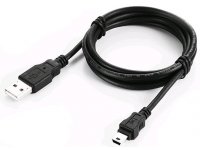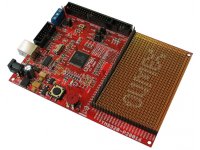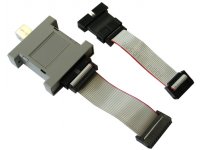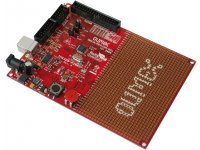≡
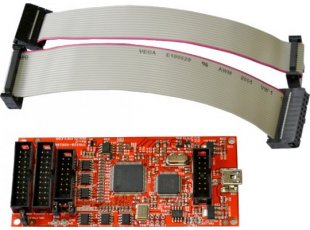



TMS320-XDS100-V3




XDS100V3 - The world's lowest cost DSP / ARM high speed USB JTAG for programming and emulation
| Price | 54.95 EUR |
|---|
This is an XDS100v3-compliant emulator that follows the Texas Instruments' reference design.
FEATURES
- TMS320-XDS100-V3 hardware is designed to work with CCS5 or CCS6 software
- Grants free license for TI's Code Composer Studio 5 and TI's Code Composer Studio 6 and TI's Code Composer Studio 7.
- Tested and confirmed working wtih Code Composer Studio 12
- Tested and confirmed working with SmartRF Studio
- Tested and confirmed working with Uniflash
- Supported in IAR EW for ARM (for IAR versions after 6.40).
- Equipped with three JTAG connectors for different JTAG layouts: TI 14-pin JTAG; TI 20-pin JTAG and standard ARM 20-pin JTAG layout.
- All plastic headers have 0.1" pin step for easier access
- Two compatible female-female cables included - 14-pin and 20-pin one.
- Works with targets in 1.65V-5.0V range.
- The unit is powered from USB
- IEEE 1149.7 capable emulator with a USB interface.
- Can function as an 1149.7 adapter for use with existing scan controllers.
- Software compatible with XDS100v2 (except link delay and IEEE 1149.7 modes).
- Physical jumper to select emulator or adapter mode.
- Operates in 1149.7 Class 4, up to 25MHz.
- LED to indicate IEEE 1149.7 Class 4 operation.
- LED to indicate operation in adapter mode.
- Supported devices: TMS320C28xx, TMS320C54xx, TMS320C55xx, TMS320C674x, TMS320C64x+, TMS320C66x, ARM9, ARM Cortex A9, ARM Cortex A8, ARM Cortex M3, ARM Cortex R4
- Board dimensions (4.15 x 1.80)" ~ (10.5 x 4.6)cm
- All the features of XDS100v3
DOCUMENTS
HARDWARE
SOFTWARE
- In case of issues with the drivers for CCS, make sure to install the XDS100 EMUPack
- XDS100 hardware grants free license for CCS5 and CCS6 and CCS7
- Documents and information suitable for older hardware revisions might be found at the wiki article of TMS320-XDS100-V3
FAQ
- Does your design follow the original XDS100v3 design? If it doesn't what are the differences?
- The TMS320-XDS100-V3 follows almost blindly most of the XDS100v3 reference design suggested by Texas Instruments. The main differences are that we provide extra connectors for both TI JTAG and ARM JTAG layouts; and we don't use the 20-pin compact TI headers and connector; we use 20 pin 0.1 inch pitch connectors (which are not standard according to the TI's JTAG standard; but easier to work with). You can always use jumper wires with the 0.1" pitch connectors, which is not the case with the 20-pin CTI connector.
- I connected the emulator to my computer but it requires drivers. Where can I find the drivers?
- The drivers are installed via Code Composer Studio but if there are issues make sure after CCS installation to manually install the XDS100 EMUPack from here:
https://software-dl.ti.com/ccs/esd/documents/xdsdebugprobes/emu_xds_software_package_download.html
Also refer to the XDS100 wiki article for detailed instructions: http://processors.wiki.ti.com/index.php/XDS100
- I can't configure CCS to work with the debugger. Can you help me?
- This is a good help article about XDS100v2 and XDS100v3:
https://software-dl.ti.com/ccs/esd/documents/users_guide/ccs_debug-main.html#xds100v2-and-xds100v3
- Can I use this XDS100v3 emulator with Uniflash?
- Yes, it had been tested successfully with Uniflash. Just make sure to edit the XDS100v3 connection and set the proper connection settings.
- Can I use the emulator with SmartRF Flash Programmer 2?
- Yes. It had been tested successfully with SmartRF Flash Programmer 2 version 1.7.2 (build #5) and CC2650.
In case you get the following error - "The selected device was not recognized. Name of the device not defined in device_info.xml XDS100 Ver 3.0" - this is caused because the name of the Olimex emulator is "XDS100 Ver 3.0" while the defintion in the programmer software is "XDS100v3". You can fix the error by editing the device_info.xml file containing name defintions. It is typically located in "C:\Program Files (x86)\Texas Instruments\SmartRF Tools\Flash Programmer 2\config\xml". Open device_info.xml with a text editor and search for the part where XDS100v3 defintions are (they follow the same pattern as below). Copy-paste the below code in the xml file and save. Then re-start the SmartRF Flash Programmer. The defintion to add looks like:
<DeviceFamily type="eb" name="XDS">
<Device name="default" family="XDS">
<UsbController>XDS100V3-FTDI</UsbController>
<DeviceImage>serial_port.png</DeviceImage>
</Device>
<Device name="XDS100 Ver 3.0" family="XDS">
</Device>
</DeviceFamily>
Refer to this picture on how the edited xml should look like this: edited device_info.xml
- Do you manufacture and sell 14-pin and 20-pin CTI adapters?
- No.

